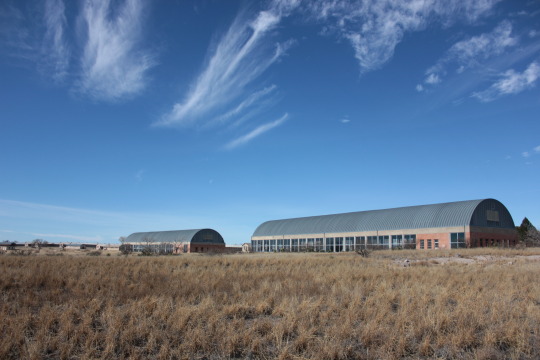
As of last week, there have been over a dozen cases of condemnation proceedings against local landowners in Western Texas in the interest of Energy Transfer Partner’s private contractors beginning work on the 143 mile Trans Pecos natural gas pipeline. The three companies in the ETP (two helmed by billionaire businessmen) argue that the pipeline will bring tax revenue and jobs, as well as purported environmental benefits. Opposition believes these jobs will be short-lived and and leave the pristine desert landscape destroyed. There are concerns about the transparency of both the ETP and government. It’s a complicated argument. I wanted to ask two very different sometime residents to talk about their personal history of creative production in Marfa in particular.
The undisturbed land has a rich cultural context. It’s not valuable because of any one legacy. “Marfa’s become self-aware, and that is a bit of a problem,” Flavin Judd tells me. “It’s Marfa’s price to pay for not becoming a ghost town, which was the other alternative. Don didn’t like the idea of an artist’s community and thought it was ridiculous, so that was not his intention or interest. His interest was finding a beautiful place to learn, think, and work.” Judd is the son of the late artist Donald Judd, known for his minimalist works, the subject of a MoMa retrospective next year. It was Donald Judd who put Marfa on the proverbial cultural map, establishing his studio, residence, library there surrounded by site specific works that maximize the landscape’s space and light.
Eileen Myles bought a house in Marfa just last year. I emailed her to ask how she feels Judd’s presence around her there. “Marfa is so inflected by him,” she says. “You take the tour… I was never so interested in NY. Minimalism was what I walked into when I came to NY so I thought of it as very 70s and Soho and then there it was writ large. You kind of get infected. I want a big long table like that. I want that wall. Half the town looks like Judd. He makes more sense there with the scale and the surrounding land. He got something right.”
All this said, Flavin’s brief account of his father’s beloved Marfa is moving in this context. We spoke earlier this week in New York. He was visiting from Los Angeles, where he currently resides. Every six weeks he returns to Marfa.
“For Don, it was all about the landscape Marfa just happened to be in the landscape. As soon as we got there, he rented some land below town just to camp out while we stayed in the town. The idea, the goal, was to be out...
You have reached your article limit
Sign up for a digital subscription and continue reading all new issues, plus our entire archives, for just $1.50/month.
Already a subscriber? Sign in




